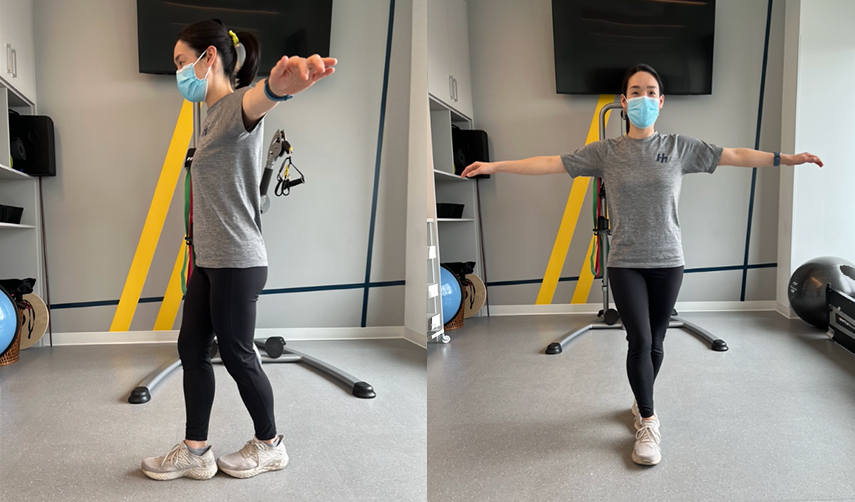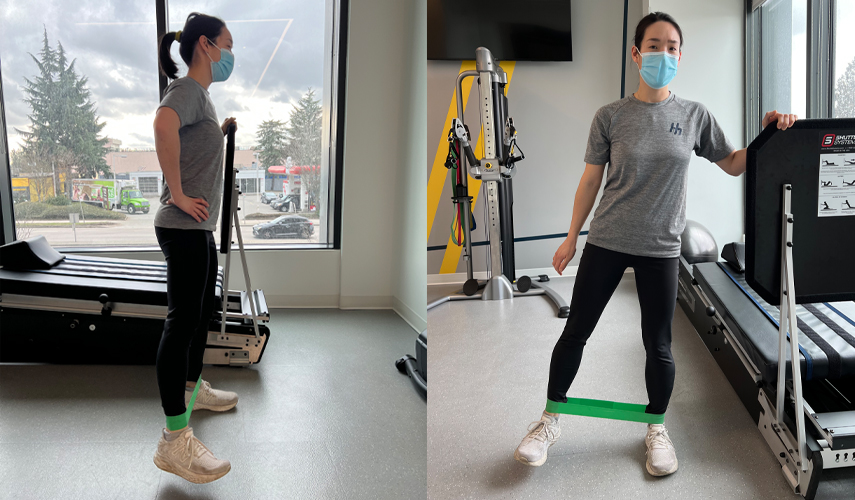By Physiotherapist Alison Chan
Falls are a major concern, especially as we age, leading to significant injuries and impacting our quality of life. Understanding and implementing effective falls prevention strategies is crucial for maintaining independence and ensuring safety. At Hayer Health, we are dedicated to educating our community about the risks of falls and how physiotherapy can play a vital role in preventing them. This blog post will explore practical tips and physiotherapy techniques that can help strengthen your body and improve balance, significantly reducing the risk of falls. Join us as we delve into proactive measures that protect your well-being and enhance your ability to lead an active life.
Why are falls an issue?
- Those who have experienced a fall are 3x more likely to have another fall within the following year
- Falls can have a negative effect on mobility, quality of life, and independent living
- Direct health care costs due to falls is estimated at over $2 billion
What are the risk factors of falls?
- Acute illness resulting in dizziness, weakness, and pain can increase the risk of falling
- Balance and walking deficits due to changes in postural control
- Chronic conditions such as Parkinson’s, arthritis, and foot disorders can affect one’s mobility and balance. Other conditions include bowel or bladder incontinence which can result in rushing to make it to the bathroom in time
- A previous fall can increase one’s risk of falling again due to the fear of falling. This can result in the avoidance of going outdoors and the subsequent muscle weakness and loss of mobility that follows.
- Certain medications can cause drowsiness, dizziness, hypotension, and visual disturbances
- Changes in cognition can affect a person’s ability to predict and adapt to changes in the environment and restore balance
- Visual deficits associated with aging can affect the ability to identify unsafe environment
- Muscle weakness was found to increase falls risk by 4-5x
- Women are 2x more likely to fracture their hip from a fall compared to men
Tips to prevent falls
- Adjust medications under the supervision of your GP
- Management of acute and chronic conditions
- Have your vision checked on a regular basis
- Use of proper footwear – anti-slip shoes for icy conditions, avoid wearing socks or slippers at home
- Exercise! Including a strength, balance, and gait training component are most effective
- Your physiotherapist will perform a thorough intake to identify your risk factors of falling and create a program tailored to your needs
Below are some exercises your physiotherapist might prescribe:
Balance:
- Place one foot in front of the other until they form a straight line
- Hold for 10 seconds
- Place the back foot in the front and hold for 10 seconds
- Repeat 5 times on each side

Strength
- Stand up tall beside a sturdy chair or table
- Bring the exercising leg out to the side and return
- Hold for 2-3 seconds at the end movement
- Repeat 8-10 times on each side

Walking and turning:
- Trace a figure of 8 on the floor
- Make sure to look straight ahead and not down at your feet
- Repeat 5 times each way

